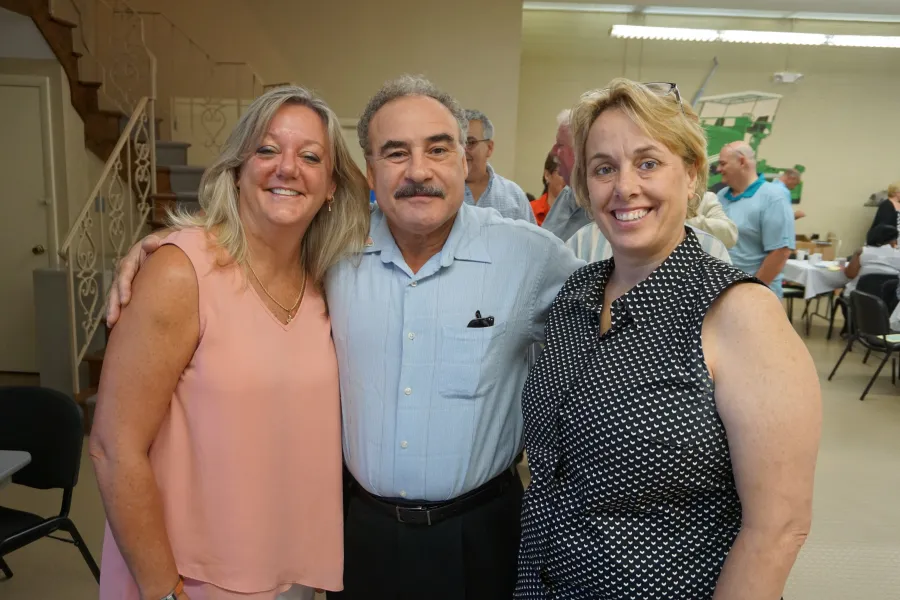AFL-CIO, Building Trades, AFT, and AFSCME Statements on Gov. Malloy’s Proposed Municipal Changes

The Connecticut AFL-CIO, CT Building Trades, AFT Connecticut, and AFSCME Council 4 made the following statements in response to Governor Malloy’s proposed changes to prevailing wage, MERS, binding arbitration, and regionalization of services:
Lori J. Pelletier, President of the Connecticut AFL-CIO:
“We are extremely disappointed with Gov. Malloy’s proposed changes to prevailing wage, the municipal retirement system, and binding arbitration.
“While the Governor pitches these changes as ‘relief’, they are simply attacks on the wages and benefits of construction workers and municipal employees.
“This is clearly a ploy by Malloy to try to make his cuts to municipal aid more palatable and get the support of municipal leaders.
“Changing the prevailing wage threshold will not do anything to help the state’s budgetary woes. In fact, it will do just the opposite – reducing or eliminating middle-class jobs that we should try to keep and grow in our state.
“And changing the MERS contributions is a red herring that has been around the legislature for years and is a regressive attack on workers. This proposal has the possibility to disproportionately impact the lowest paid municipal workers – bus drivers, paraprofessionals, janitors, and others.
“Instead of coming up with clever ways to undermine workers’ pay, Gov. Malloy should figure out how to raise wages for all working people in the state.”
David Roche, President of the Connecticut State Building and Construction Trades Council:
“This past election’s results revealed a deep frustration amongst this nation’s workforce with stagnant wages. For this administration to respond to our workers’ concerns by proposing to weaken their wage standards is offensive and shows a real lack of understanding of the struggles of Connecticut’s working families, particularly my members in the construction industry.
“The prevailing wage in Connecticut is an important tool for protecting local construction workers from unscrupulous contractors looking to artificially depress local labor standards. Changing the current prevailing wage threshold will almost certainly bring in more out-of-state construction workers who will undermine local workers and their wages.
“Driving down wages will not help balance the state budget. And with a shortage of construction workers, cutting their pay will only exacerbate the problem.
“So I invite any legislator or municipal leader to join me on a job site to experience the conditions that our state’s tradespeople are working in now. Until then, they should not presume that these skilled workers make too much money.”
Jan Hochadel, President of AFT Connecticut:
“As part of our commitment to ‘solution-driven unionism’ we welcome a meaningful discussion about the regionalization of local services, including public education.
“But let’s be clear; economic challenges like those facing Connecticut demand a comprehensive approach and the participation of all stakeholders in our state’s resource-strapped towns. That requires engaging with the public education workforce to craft viable solutions that respect their contributions to their communities and their rights to a voice on the job.
“As the governor himself indicated today, decisions affecting our children’s rights to an equitable education shouldn’t be left to a single judge alone. The solutions he’s proposing to seek won’t be found if education professionals are left out of the decision-making process, either.
“Any attempt to provide relief from unfunded state mandates must include collaborative negotiations with the teachers and support staff whose efforts in classrooms across the state will be impacted. To do otherwise threatens to harm their students’ educational opportunities now and in the future.”
Sal Luciano, Executive Director of AFSCME Council 4:
“Right now the General Assembly has raised hundreds of bills attacking wages and benefits of working people but practically nothing to fix our over-reliance on property taxes or to reduce income inequality. The governor needs to lead, and not follow this misguided direction of lowering working standards.”
# # #
